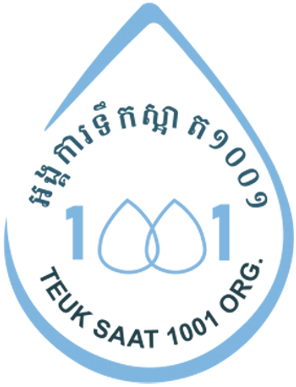
Reduction of waterborne disease is a major public health goal in developing countries.
Before buying water from Teuk Saat 1001, the villagers drank water either from home filtration system provided by NGOs (no maintenance or replacement) or boilding water from rivers/ponds. This has a direct impact on the health of the villagers on diarrhea risks and school absenteeism. A study of Teuk Saat 1001’s health impact is being realized by Langley University & Indochina research and the results should be published at the beginning of 2014.
Over large parts of the world, humans have inadequate access to potable water and use sources contaminated with disease vectors, pathogens or unacceptable levels of toxins or suspended solids. Drinking or using such water in food preparation leads to widespread acute and chronic illnesses and is a major cause of death and misery in many countries.
As a direct consequence:
1.6 million people die every year from diarrheal diseases (including cholera) attributable to lack of access of safe drinking water and basic sanitation and 90% of these are children under 5 mostly in developing countries; and hundreds of million people are infected either with worms or hepatitis A, causing elevated risks of blindness and tens of thousands of deaths yearly…
